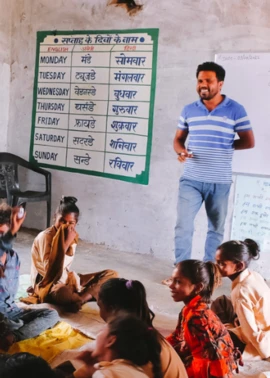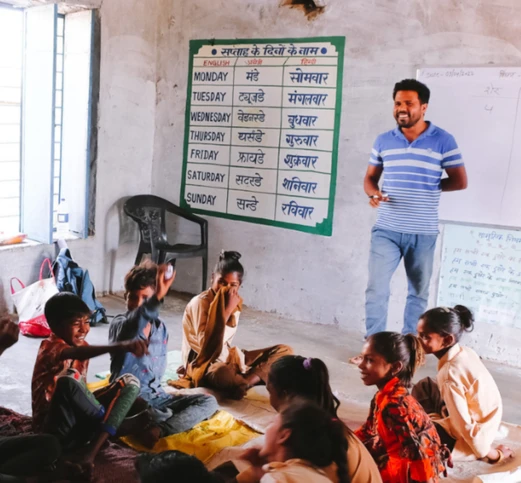Brio is a global mental health organisation that partners with local leaders and civil society to co-design mental health programmes.
At the heart of Brio’s approach is Acceptance and Commitment Training (ACT), a behavioural science model that builds psychological flexibility, self-awareness, and values-driven action. Brio focuses on strengthening mental health skills and processes, promoting wellbeing, and improving community mental health support systems.
At the virtual One Young World Summit held during the coronavirus pandemic, Daisy found renewed hope and motivation by hearing how other leaders continued their work despite global uncertainty.
Brio has directly impacted 133,820 individuals across 17 mental health initiatives. In India, Brio’s 21-day well-being programme, named Hausla, equipped over 127,000 government school teachers and 100 youth facilitators with increased emotional resilience, self-awareness, and efficacy skills to improve classroom environments. Additional projects include a menstrual and mental health programme in Karnataka for 500 adolescent girls and a pilot project integrating mental health curriculum in government schools in Rajasthan, reaching 1,000 children and 120 teachers.
In the United States, Brio supported 2,500 18-25 year old AmeriCorps members with wellbeing training and resources to improve mental health. In Latin America, Brio helped train 2,000 community volunteers to provide peer mental health support for youth, Indigenous communities, and families affected by violence, migration, or forced disappearance. Additionally, in Colombia, youth-centred programmes used music, dance, and storytelling to promote the wellbeing of 100 individuals in conflict-affected areas, and a project with human rights collectives in Mexico provided mental health training to 200.Brio demonstrates the impact of community-driven scalable mental health programmes across three continents. Following the successful pilot, Brio and its local partner are now collaborating with the government of Rajasthan to integrate a mental health curriculum that reaches 3.3 million children across 74,000 schools by 2028.
Project links
Contributor

